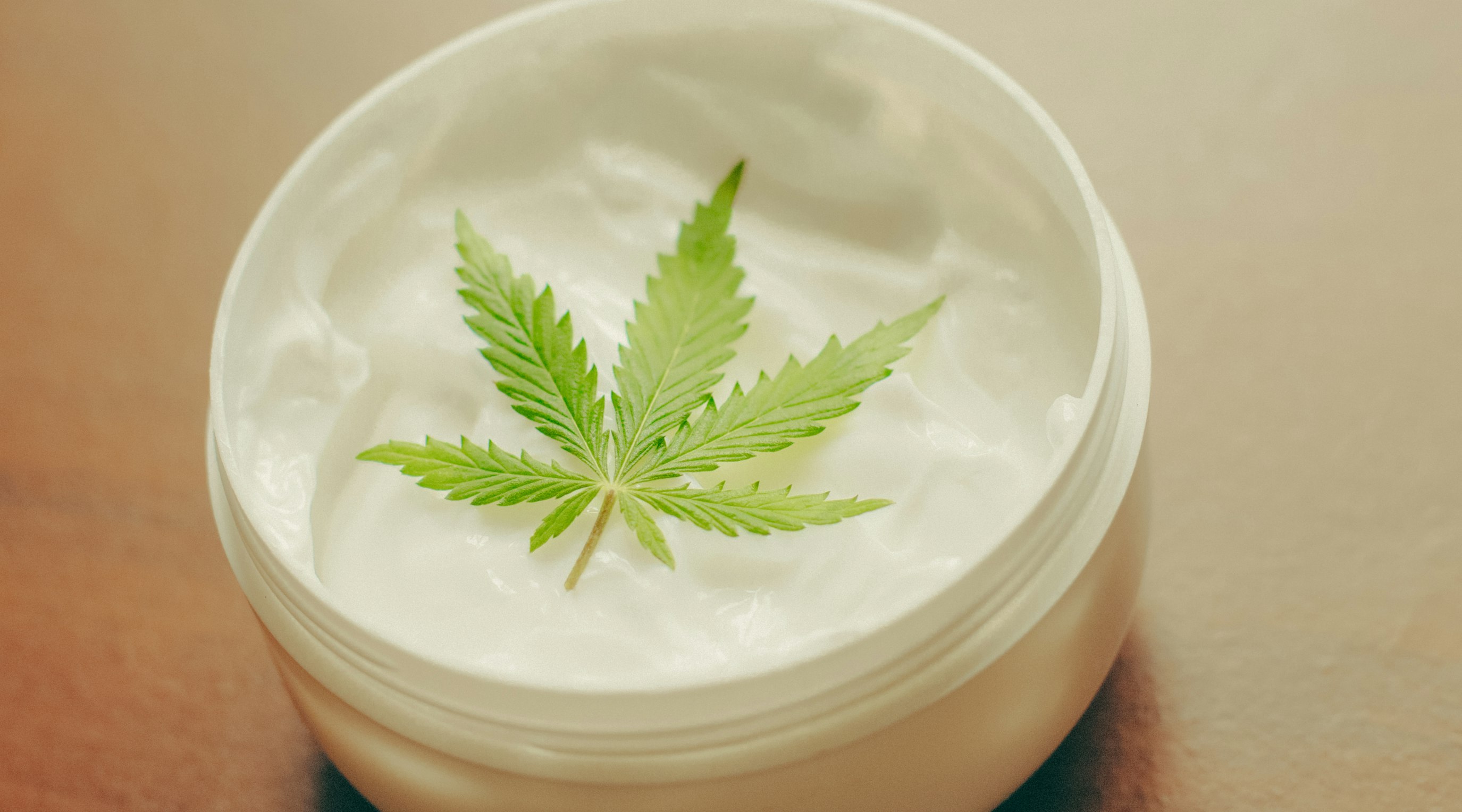Acne scarring is a complication of acne. Any type of spot can cause scarring, but it’s more common when pustules and nodules burst, resulting in damage to the surrounding skin. Squeezing the spots will also increase the risk of scarring.
Treatment of scarring is usually seen as cosmetic so, generally, isn’t covered by the NHS, but it can cause significant psychological distress. Dermabrasion, chemical peels, skin needling, laser treatment, punch techniques, and subcision can all help improve appearance. In recent years, CBD creams, derived from medical cannabis, have gained attention as a possible non-surgical alternative because of their anti-inflammatory, antibacterial and scar-reducing properties.
CBD and its properties
CBD is a compound found in the cannabis sativa L. plant. This versatile and hardy plant, thought to originate from China and Asia, has been used for millennia for a variety of therapeutic and industrial purposes. As well as being used by our ancestors to treat everything from gout and constipation to muscle stiffness and stomach upsets, cannabis grown as industrial hemp is used to make shoes, clothes, textiles, ropes, fishing nets, paper, and biofuel.
Cannabis contains hundreds of different compounds that have potential health-positive effects. Among them is a group of compounds called cannabinoids. The most active of these is tetrahydrocannabinol (THC), more commonly known as the part which gives users a sense of euphoria or a ‘high’. Cannabidiol (CBD) is the second most active of these cannabinoid compounds but has no known psychotropic effects, making it of real interest to the scientific community.
CBD-based creams, ointments, tinctures, and moisturisers are legal in the UK, provided they contain no more than 0.2% THC. Consequently, there are many topical and oral products on the market which may be beneficial to people with acne scarring.
Clinical research on CBD cream for acne scars
Scientists have discovered that CBD interacts with the endocannabinoid system (ECS), a complex network of signaller and receptor cells spread throughout the body. The ECS is responsible for many critical bodily functions including skin regulation, maintenance and inflammatory responses. Scientists are still working to understand the full role of the ECS in skin health, but it appears to play an essential part in wound healing.
A 2016 study by Zurier and Bernstein for the FASEB Journal concluded that cannabinoids like CBD had anti-inflammatory and antifibrotic properties. The study found that chronic inflammation could be resolved more quickly while the production of collagen was reduced, which, in turn, led to reduced fibrosis aka scarring.
A 2019 study in Molecules also suggested cannabinoids could control fibroblasts – collagen-producing cells in the skin. The authors concluded that they could potentially aid skin healing and scar formation. They also theorised that, by modulating the ECS with cannabinoids, they may even be able to achieve scarless healing.
Furthermore, CBD can potentially alleviate the causes of acne itself by exerting an effect over the cells that overproduce sebum, the oil which blocks pores, according to a 2014 study. The authors suggested it required a full clinical exploration as a potential and potent candidate for an entirely new type of acne treatment.
Choosing and applying CBD cream for acne scars
Many CBD products are not marketed specifically to acne sufferers but, given their anti-inflammatory and scar-healing effects, they may well provide some benefit. However, when choosing the right cream, it’s important to consider a few factors first:
- Third-party testing – Does the manufacturer have any third-party test results which demonstrate its therapeutic abilities?
- Concentration – Check the concentration of the CBD cream you buy. Generally, 5-10% is considered low, 10-15% medium and above 20% high. Choose a lower concentration first, monitor its effects and increase the dosage as necessary to achieve the desired effect.
- Other ingredients – Avoid selecting creams that contain substances which can exacerbate your acne scars. Denatured alcohol, fragrances, parabens, sulphates, oxybenzone, mineral oil and lanolin are all ones to avoid.
Other considerations related to CBD cream and acne scars
Research has found that CBD has a favourable safety profile. However, as with using any new treatment, a cautious approach is best. It’s important to speak to your doctor before embarking on any new treatment to make sure it won’t interact with any other medications.
When used topically, it is mostly well-tolerated, but may lead to localised skin irritation in some patients. It may also cause a dry mouth, nausea, fatigue, diarrhoea, and drowsiness.
Finally, it’s essential to ensure any CBD cream you do buy contains less than 0.2% THC, or it is considered illegal in the UK.
CBD to improve acne scars?
It’s early days, but the research is promising. With further clinical studies, CBD creams may yet prove to be an effective novel treatment for acne scarring, potentially offering relief for millions of sufferers worldwide. In the meantime, it’s significant to remember that prevention remains the best strategy when it comes to acne scarring – keep skin clean and clear as much as possible and resist squeezing any spots.
Although CBD is regarded as a safe substance overall, it still has the potential to interact with other medications or cause mild side effects if taken orally. Therefore, it’s critical to speak to a doctor before embarking on any new treatment. They can provide tailored advice and help you make an informed decision about the best way to improve acne scars.
Accessing medical cannabis can be challenging due to the stigma surrounding it. However, Releaf makes it simple with our tailored monthly packages, specialist consultations for medical cannabis, and a unique medical cannabis card for protection, all based on your cannabis prescription.





